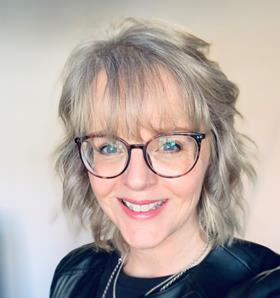In Spring 2021 menopause was on a list of subjects for discussion at the monthly meeting of Simmons & Simmons TNOC, our Gender Balance Committee. The subject languished towards the bottom of the agenda and when we reached the subject it was met with silence. Even within the safe space of a gender balance committee, menopause was taboo.

(We use ‘menopause’ as an all-encompassing word that captures perimenopause (the phase leading up to), menopause (that one day that marks a year from the end of a woman’s periods) and post menopause (the life stage that may end up representing over 50% of our life as more of us live to 100 and beyond).)
The silence was broken through a committee member sharing their experience of early menopause and the part that it played in their decision to exit a senior role. The lived experience was personal to the individual but demonstrated the silent impact that menopause could be having on Simmons & Simmons’ gender balance aspirations.
Turning back to our discussions at that TNOC meeting: the growing body of research was showing us that the symptoms and experience of menopause cause women to leave the workplace, downgrade their roles or reduce working hours. For some, it means choosing not to take the next career step, progression or promotion. The personal and business cost of these decisions is considerable.
The average age of menopause is 45 to 55 and comes when women are at the height of their power, arguably at their most important to their organisation. With menopausal women being the fastest growing demographic in the UK, the message was clear: the impact of menopause is not going away and it’s not reducing in size.
What did we do?
We were simple in our aspirations. Our aim was to make Simmons & Simmons a safe place to talk about menopause. To do this, we first had to accept that collectively we did not know enough about the subject so we went back to basics, filling the education gap with a webinar supported by medical experts with years of experience treating and tackling the taboo.
We concluded the webinar by launching a ‘Mastering the Menopause’ section of our wellbeing hub – a place to consolidate a range of resources from all manner of sources that might appeal to a range of readers in search of information and signposting.
The webinar was followed by a series of smaller sessions that included engagement with a specialist GP, sleep experts and dieticians. These workshops gave us the chance to ask our employee community more about the support they wanted to see. The feedback demonstrated that certainty was needed, that guidance (at this point in time) felt too flimsy and optional as a solution. It demonstrated a need for clarity and the reduction of ambiguity: this was the starting point for the creation of our Menopause Policy.
In parallel with working on our policy, we ran expert-led menopause training for our most senior leadership and hosted a client-facing webinar in November 2021 which built on 2021 Fawcett Society research on the impact on women in financial services. The research cohort was financial markets but the lessons have wider application. It reinforced what we believed was relevant to the law: with the right support, women can stay and progress.
Our Menopause Policy was launched in December 2021 and we signed the Menopause Workplace Pledge in September 2022. Along the way we also appointed Menopause Champions and refreshed our UK wellbeing provider, closing the gap on excess payments for menopause-related support.
Three things we’ve learnt along the way
Not everyone will be pleased to talk: from a belief that menopause is not a workplace issue or a deeper-rooted fear that discussing the subject is 'showing another weakness' or 'giving them another reason not to promote me'. These concerns are real, need to be handled sensitively and should be anticipated and planned for.
It’s good to talk: get involved in discussion and debate to widen your view on the opportunities and better understand the barriers to change. We’re dealing with the challenge of the office work environment whilst learning from menopausal scientists working on cutting edge vaccines in a hazmat suit. We’ve learnt about unique cultural challenges and we’ve explored the role that HRT and menopause plays within the trans community and moved from a subject that felt singularly ‘woman’ to a more human centric ‘people’ view that still requires time and understanding.
Sometimes success comes in the smallest of packages: it’s really tempting to want to measure success by some big event such as a wholesale work place epiphany but the reality is the measure of success in cultural change is incremental: a colleague reaching out for help, a line manager asking how to support a colleague who’s perimenopausal and struggling, a male colleague speaking at an event on the 3 M’s (menstruation, maternity and menopause) that might traditionally have been the preserve of the female.
So where next?
It might feel a little mundane but, as our work is not yet done, we’re aiming for more of the same!
In the shorter term we have more work to do to internationalise our efforts, ensuring that the arrangements we have in place are reflective of local culture and the needs of individuals across our business. In the longer term, we want our work to become embedded in Simmons & Simmons culture: open and safe conversations about menopause will simply be the way we do things around here.
Barbara Hamilton-Bruce is head of client and business operations at Simmons & Simmons Solutions Limited































3 Readers' comments